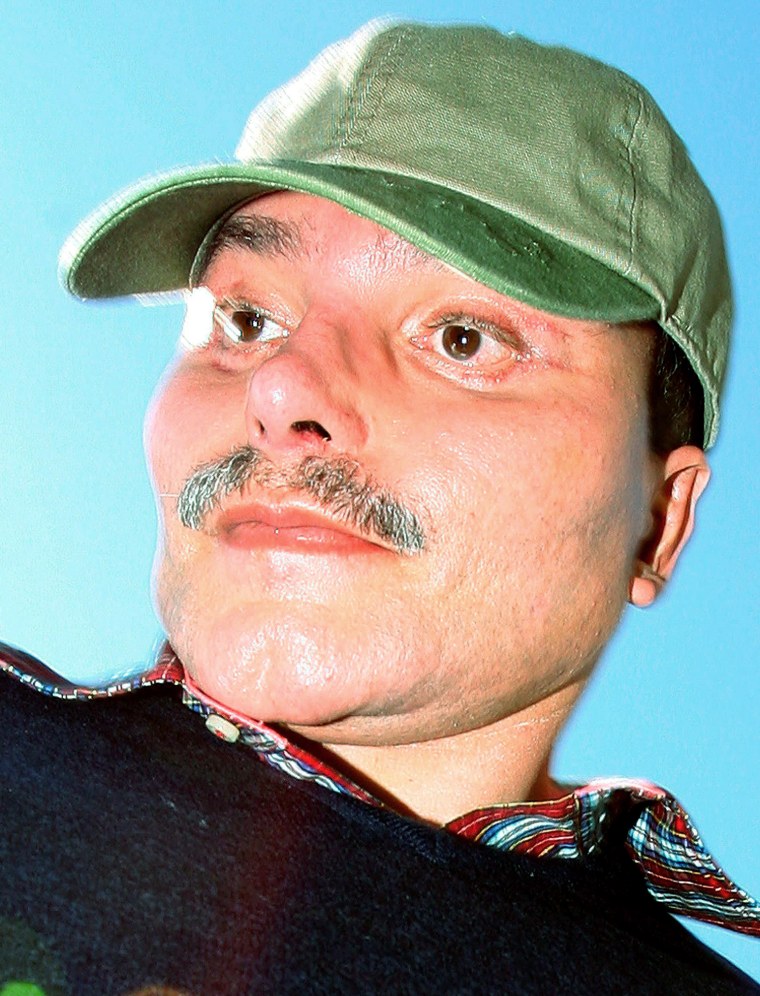A reputed leader of Colombia’s biggest drug cartel radically altered his facial appearance with repeated plastic surgeries. But his own words gave him away, thanks to advanced voice recognition technology that has become a key tool in the war against drugs and terrorism.
U.S. agents confirmed the identity of Juan Carlos Ramirez Abadia using the equivalent of a vocal fingerprint, his attorney said Friday.
Brazilian police had closed in on Ramirez Abadia’s properties in and around São Paulo, and were probing his alleged laundering of the Colombian cartel’s drug profits. But because of his surgeries and multiple aliases, they lacked the positive identification needed for an arrest warrant.
They got their break by taping his telephone conversations, his lawyer, Sergio Alambert, told The Associated Press.
Colombian officials provided a recording they had of Ramirez Abadia, and both sets of recordings were passed to the U.S. Drug Enforcement Agency, which made the match, Alambert said.
Richard Mei, spokesman for the U.S. Embassy in Brasilia, confirmed the DEA assisted in the Brazilian investigation of the drug lord, whose Norte de Valle cartel allegedly shipped 550 tons of cocaine to the United States from 1990 to 2003. Mei declined further comment.
With the positive ID in hand, police swooped in on 22 locations in six Brazilian states, and caught Ramirez Abadia on Tuesday in a luxurious home with a gym, sauna, plasma TVs, a swimming pool and nearly $1 million in stashed cash. Authorities found another $1 million buried in the garden of another home near São Paulo on Thursday, Alambert said.
How technology works
U.S. intelligence agencies have used voice recognition for decades, but the technology has become much more effective in recent years through improvements in software that rapidly analyzes vocal frequency patterns, said Jim Hunter, a partner in the Merlin Risks security firm in São Paulo.
“The way you use your voice is as individual as fingerprints,” Hunter explained. “If they have a sample of a known voice and they get an unknown sample of sufficient length, they then test the unknown against the known.”
The process is more complex than fingerprinting because peoples’ voices are different when they speak normally, yell or whisper — but the software breaks down different frequencies and uses statistical analysis to make matches.
Governments keep close guard on the most advanced voice recognition technology, but almost anyone can run a personal computer by voice now, “which means the software has made rapid progress. The machine can read the patterns and respond to the patterns,” Hunter said.
Alambert said Ramirez Abadia, 44, arrived illegally in Brazil four years ago and acknowledges using profits from cocaine shipments by his Norte del Valle cartel to buy businesses that police say included cattle ranches, industrial property, mansions and hotels. A $1 million yacht, jet skis and bullet proof cars were among the property seized.
Ramirez Abadia told his lawyer he left Colombia for Brazil because he feared he might be killed by rival drug gang members and was not involved in any drug trafficking in Brazil. The nation is a major transshipment point for cocaine sent from other South American nations, and Brazilian domestic cocaine consumption is growing dramatically.
Extradition may take years
American officials say they will soon file a request to extradite Ramirez Abadia to face racketeering charges under a 2004 indictment — charges that could bring a lengthy sentence but not the death penalty. Colombian authorities have hinted they may also seek custody.
Brazil’s Supreme Court will decide, a process that could drag on for months or even years. Brazilian law bans sending foreign suspects back home if they face the death penalty or a sentence of more than 30 years.
Ramirez Abadia is also expected to face Brazilian charges of money laundering, gang formation and use of illegal documents while in the country, but Alambert said his client hopes American and Brazilian authorities will make a deal so he can be sent directly to the United States to serve time in prison. Alambert said Ramirez Abadia fears he would be killed in Colombia.
The Norte del Valle cartel emerged as Colombia’s most powerful drug gang in the mid-1990s, and in September 2004, the State Department began offering up to $5 million for information leading to its leaders’ arrest.
That’s about when Ramirez Abadia — nicknamed “Chupeta,” or lollipop — moved from Colombia to Brazil and underwent at least two plastic surgeries to alter his appearance.
'I'll take the blame'
His personal wealth once reached $1.8 billion — although the State Department says he’s apparently indebted to other traffickers — and Brazilian authorities have compared him to the infamous drug trafficker Pablo Escobar, who bombed shopping malls and even commercial aircraft while fighting extradition before he was killed in Colombia.
Ramirez Abadia made about the same amount of money as Escobar and was ruthless in attacks on rivals, according to the director of Colombia’s judicial police, Col. Cesar Augusto Pinzon, who said Ramirez Abadia is responsible for 100 murders in Colombia, including 30 members of the extended family of Victor Patino, a rival whose relatives were butchered and thrown into the Cauca river.
Ramirez Abadia indicated after his arrest that he would cooperate with drug investigations, but has since changed his mind because he fears relatives in Colombia would be targeted, Alambert said.
“He told me yesterday it’s not worth it,” Alambert said. “He said, ’They can send me away, I’ll take the blame, but it’s all mine.”’
